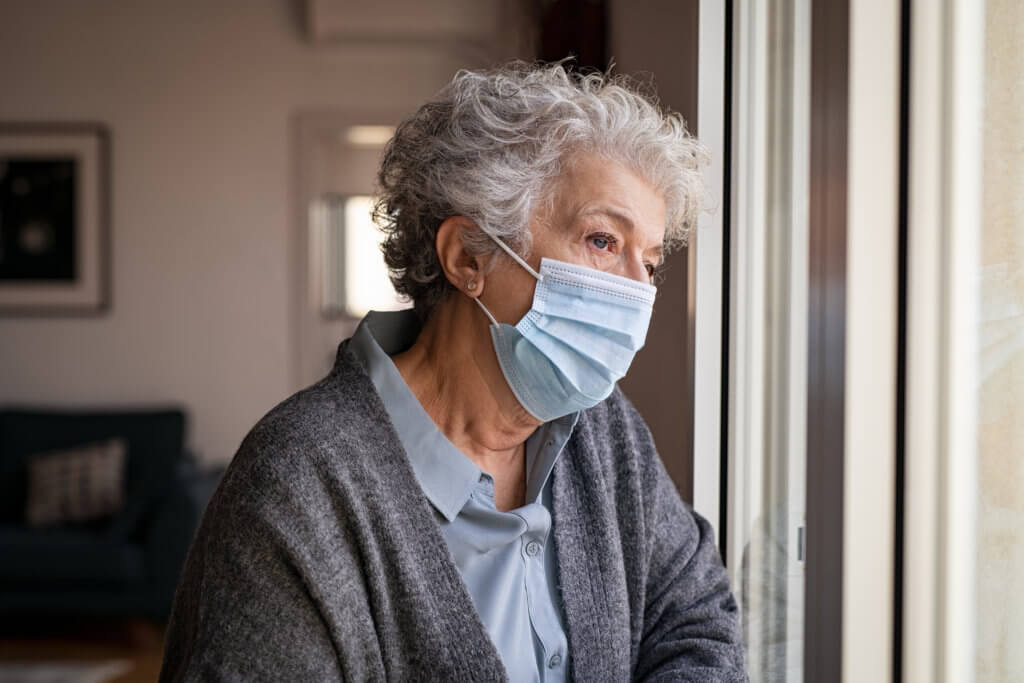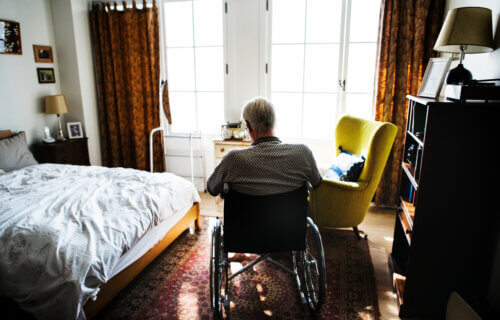ANN ARBOR, Mich. — Nursing homes were the sites of many tragedies and mismanagement during the COVID-19 pandemic. Unfortunately, a new study finds that older adults who survived nursing home outbreaks may still be suffering from these infections.
Long COVID is having a dire effect on nursing home residents across the United States. Researchers from Michigan Medicine, the academic medical center of the University of Michigan, compared the physical and mental functioning of nursing home residents who had contracted COVID-19 with those who had not over a one-year period. They discovered that the outcomes of COVID-19 on nursing home residents can extend far beyond the acute infection phase.
The study focused on residents’ ability to perform daily activities and their cognitive function.
On average, nursing home residents who survived COVID-19 experienced effects that persisted for approximately nine months. Furthermore, the study found that 30 percent of those who had a confirmed case of COVID-19 died during the follow-up period, which was more than twice the percentage of deaths in the comparison group.
The study examined data from two Michigan nursing homes, analyzing the physical and mental functioning of residents who tested positive for COVID-19 between March 2020 and October 2021, compared to residents who did not contract the virus during the same period. The majority of the residents were women over 80 years-old, and all had multiple chronic health conditions.

Researchers used standard scales commonly employed by nursing homes to assess residents’ physical and mental functioning, including their need for assistance with daily activities and cognitive tasks. The study revealed that nursing home residents who tested positive for COVID-19 experienced a significant and lasting decline in both measures compared to those who did not contract the virus.
“Before the pandemic, the two groups scored about the same on both their need for help with activities of daily living, or ADL, and their cognitive status,” says study author Dr. Sophie Clark, former University of Michigan geriatrics fellow who is now at the University of Colorado, in a media release. “But the patients who tested positive for COVID showed a sudden decline in both measurements that lasted long after their infection.”
Dr. Lona Mody, interim chief of the division of geriatrics and palliative medicine at the U-M Medical School and staff physician at VA Ann Arbor Healthcare System, noted that this decline places additional stress on nursing home staff, who are already dealing with challenging workloads.
“Nursing home residents who had had COVID-19 experienced new decline in their function and needed substantially more help with daily activities after their acute infection period, lasting for months,” says Dr. Mody. “This places an even greater burden on nursing home staff, who are already stretched thin.”
The study also found that COVID survivors without dementia gradually regained their ability to perform daily activities and nearly caught up with the uninfected group after one year. However, those with dementia who had contracted COVID-19 experienced a faster decline in cognitive function compared to their peers who had dementia but were not infected.
While the study suggests that measures taken to protect nursing home residents from COVID-19, such as reducing visiting options and social activities, may have contributed to the overall decline in both groups, researchers acknowledge that recent data shows COVID vaccination can reduce the risk of long COVID. They encourage nursing home residents, staff, and visitors to get vaccinated to help prevent further cases of acute and long COVID in this vulnerable population.
The study is published in the Journal of the American Geriatrics Society.
You might also be interested in:
- What age will disability force you into a nursing home? Study finds it’s 84
- Long COVID can leave some patients with crippling fatigue for nearly 2 years
- COVID-19 increases risk of developing Alzheimer’s in older adults within one year by 80%

